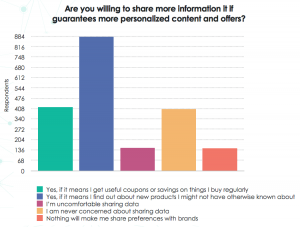Events provide a wonderful opportunity for you to build relationships with your target audience and generate goodwill and leads. The common consumer is constantly being bombarded with so many marketing attempts and messages from business organizations that it often takes a little extra to convince them to make the purchase.
Event marketing is a great way to go that little extra mile and promote your product to your target audience. Problem is, organizing an event and having a decent number of participants will not ensure that your business will acquire any new leads. You need to understand the changing mindset of the consumers today and seize the opportunity that internet and social networking give you to target the right people, connect with them in the right way, generate sales leads and re-distribute your event’s content to squeeze even more return out of it.
Gone are the days in which inviting people by mail would suffice. You now need to generate a dedicated page for your live event with all the relevant information about your event, and include a sign-up form – to make participation in your event easier and accessible to all. 
The Basics of Great Event Planning
Planning is a critically important step of organizing a successful event. I’d claim that before you even get down to some reality enforced constraints and check-lists such as: your available event budget, venue capacity, or even the actual event marketing – you need to make sure you are organizing an event that is right for your target audience. One which the kind of people you’re after will be excited and curious about. Otherwise – all of your efforts will have been in vain.
“Give me six hours to chop down a tree and I will spend the first four sharpening the axe.” A. Lincoln
Simply filling up a venue does not mean you’ll get even one lead out of it. Make sure it is filled with the right target audience which are more likely to be interested in following up with your service, based on the event’s content. The event’s main topic and content must be relevant to your target audience, and must also connect to your product/service.
Try to invite some influential people from the relevant field, prepare contents (presentations, speeches, leaflets, informational booklets etc.) that are well designed and provide good value and information.
Once you’re done identifying the right target audience – openly ask them what type of event they’d like to attend, and what kind of content would interest them. If you can tell what will get them all fired up in advance – you’re more likely to get them to follow through with your marketing funnel and your ‘post event day’ calls to action.
Some Technical Planning
 Here are some basic areas that you must take into consideration while planning:
Here are some basic areas that you must take into consideration while planning:
- Event resources: The amount of people you can host, and available budget (and possible sponsors who can help increase it).
- A convenient place and time – would be one that lets you have enough time to prepare the event (about 2-4 weeks should do for a small – medium sized event). The scheduled date should obviously be comfortable for most of your audience as well, meaning – no holidays or special days.
- Scheduling: Scheduling is important at all three stages of organizing an event: pre-event, during the event and post-event. List the tasks you need to perform during each stage and set an assigned time and person to each task.
- Segment your promotional activity for better results: For segmentation you can use demographics like location, job title, industry etc. You can have sub-goals and follow different communication strategy for each segment.
- Leverage the power of social media: Enable people to register to your event via Facebook. This will help you spread the word out to their friends. The same goes for Google+. Make it easy to tweet about your event upon registration. You can do that by redirecting registrants to a thank-you page, in which they can easily perform some social sharing actions. Post targeted ads or content on LinkedIn and LinkedIn groups, if your event is targeted towards specific industry professionals.
- Run PPC ads to drive traffic to your event’s landing page: Use Google AdWords to advertise about your event to the right audience who are searching for events like yours. Analyze traffic data and visitor behavior with analytics tools such as Google Analytics or Mixpanel. A/B test your event landing page to optimize it for more conversion.
- Use offline marketing to promote your event: You can still use the good old ways of promoting an event such as leaflets, invitation cards and letters.
On Event Day
“Everybody has a plan until they get punched in the face.” Mike Tyson
Prepare for emergency: make sure that you are prepared to handle risks. Have a team for risk mitigation and emergency handling. Try to think ahead of all the possible problematic scenarios that you may stumble upon during a live event, which could bruise its success:
Have a backup microphone at hand, just in case. Make sure your venue is not too hot or cold to spend a few hours in, and have some extra chairs in case of a stacked venue.

Post Event Day
Tips to Conversion of participants into customers:
- Be sure to email participants, given that the event was successful. You need to get this done on the following day, while it is still fresh in their memories! You are likely to generate some leads from the participants. But that’s not where you should stop.
- Repurpose the event’s content: Upload videos, Publish presentations, create relevant articles, and/or slideshows, and publish them on platforms such as Slideshare.
- Follow up the event on social media platforms. Create conversation around the event with your audience (Pro tip: use some pictures taken during the event to engage more people).

(227)
Report Post





